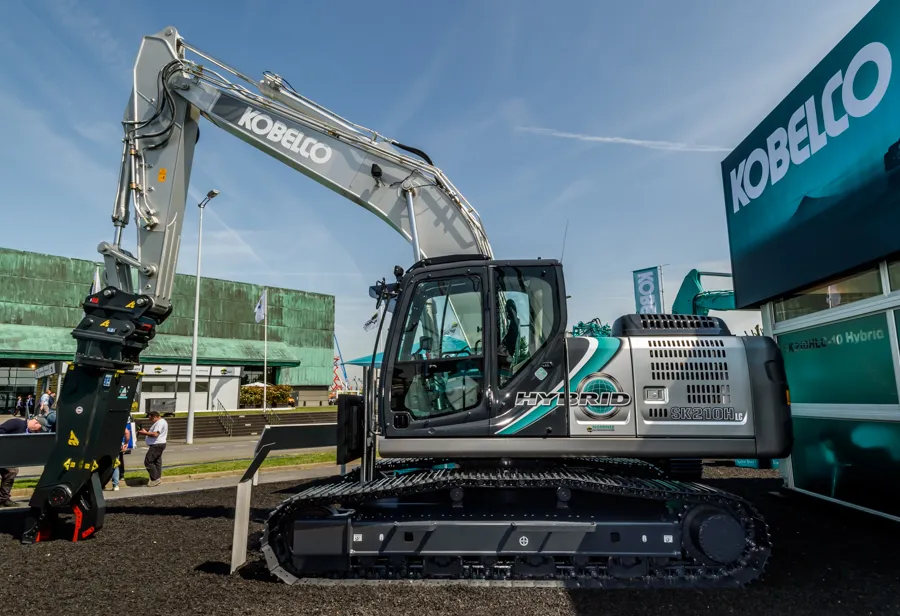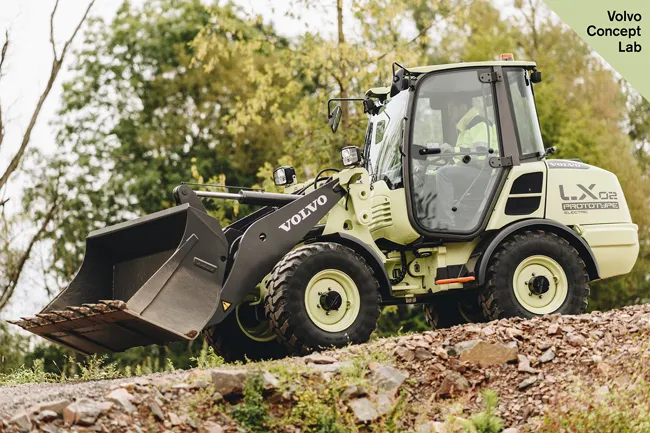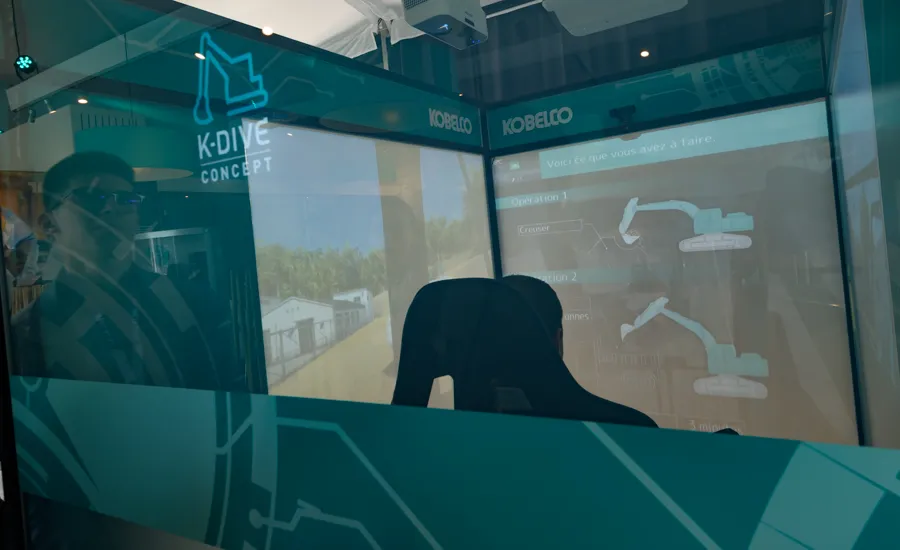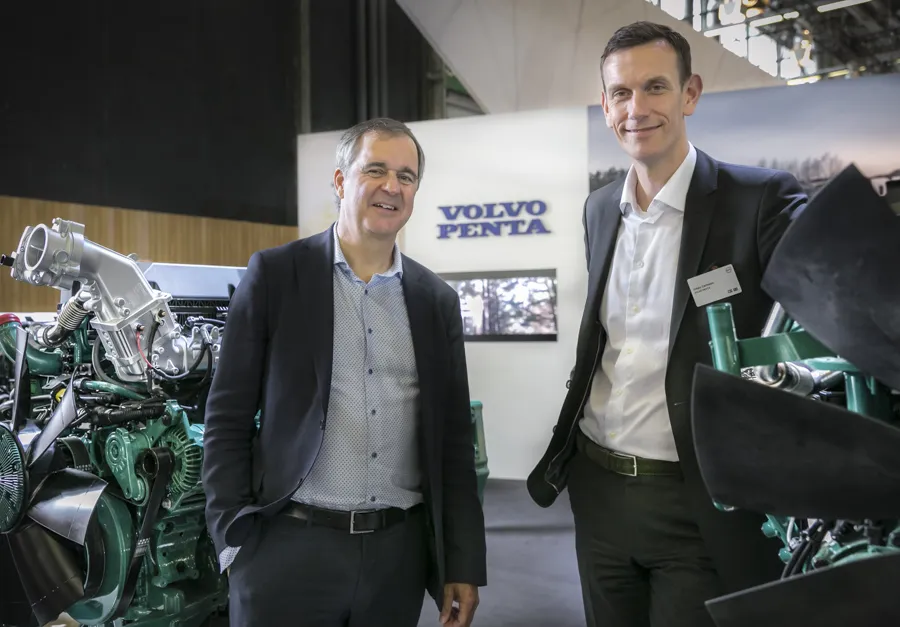
Compared to super capacitors, the Japanese maker has found that li-ion battery packs are able to retain their charge for longer, and can deliver a near-constant flow of power making engine fuel management much more efficient, while reducing spikes in operating performance.
A large capacity, 200kg lithium-ion battery pack in the SK210H has the ability to deliver 25kW of power to the excavator through a motor-generator and an electric slew motor, to compliment the machine’s 123kW Hino engine.
But, rather than downsizing the engine department, the SK210H uses the same power unit as its non-hybrid stablemate, the SK210LC.
“Operators place digging power at the top of the list,” said Makoto Kato, managing director of Kobelco Construction Machinery Europe. “So, we use the hybrid energy to substitute available engine power.”
Clever electronics automatically adjust engine mapping to remove up to 25kW from the engine’s output, and replace it with electrical power. This means the SK210H always delivers a combined power peak of 123kW, greatly reducing the amount of diesel fuel needed to maintain its output.
Kobelco Construction Machinery Europe said that fuel consumption of its hybrid excavator is 12% less than the non-hybrid SK210LC, and it reinforces its technology with a five-year, 10,000-hour warranty on the battery technology.








